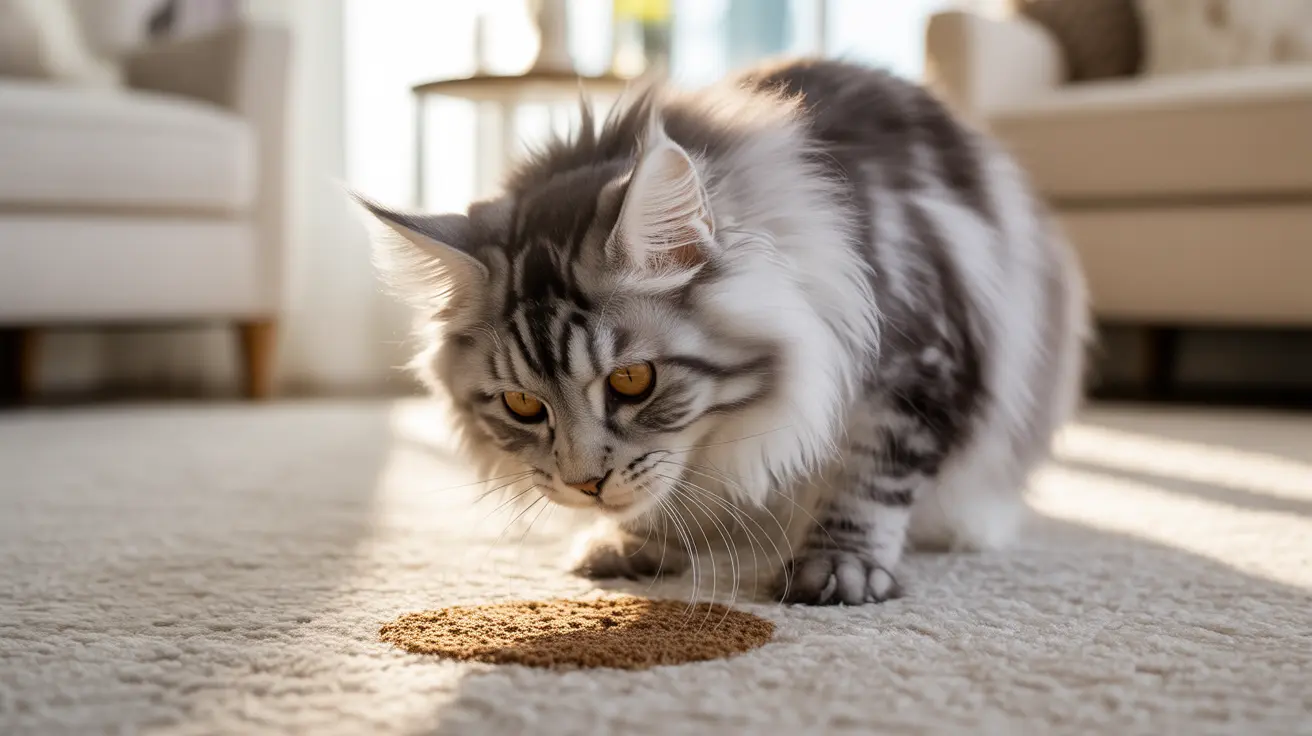Discovering your cat repeatedly urinating on your carpet can be both frustrating and concerning. This behavior, known as inappropriate elimination, often signals underlying issues that require attention. Understanding why your cat keeps returning to the same spot and how to address this behavior is crucial for maintaining a harmonious household and ensuring your pet's well-being.
In this comprehensive guide, we'll explore the various reasons behind this persistent behavior and provide effective solutions to help both you and your feline friend overcome this challenging situation.
Medical Causes That Lead to Carpet Urination
Before addressing behavioral solutions, it's essential to rule out medical conditions that could be causing your cat to urinate outside the litter box. Common medical issues include:
Urinary Tract Problems
Urinary tract infections, crystals, or bladder stones can cause pain and urgency during urination, leading cats to associate the litter box with discomfort. They may seek out soft, comfortable surfaces like carpets instead.
Chronic Health Conditions
Diabetes, kidney disease, and other systemic conditions can increase urination frequency and urgency, making it difficult for cats to reach their litter box in time.
Environmental Factors and Stress Triggers
Litter Box Issues
Many cats avoid their litter boxes due to cleanliness concerns, inappropriate placement, or box type preferences. Ensure you're following these guidelines:
- Clean the litter box daily
- Provide one box per cat plus an extra
- Use unscented, clumping litter
- Place boxes in quiet, accessible locations
Territory and Stress
Changes in the household environment can trigger territorial marking through urination. These changes might include:
- New pets or family members
- Home renovations
- Moving furniture
- Schedule disruptions
Breaking the Cycle: Effective Solutions
Proper Cleaning Techniques
To prevent repeated incidents, thorough cleaning is essential:
- Use enzymatic cleaners specifically designed for pet urine
- Avoid ammonia-based products
- Clean affected areas immediately and thoroughly
- Consider using a blacklight to locate old stains
Behavior Modification Strategies
Implement these proven techniques to redirect your cat's behavior:
- Place temporary litter boxes near problem areas
- Use positive reinforcement when your cat uses the litter box
- Install Feliway diffusers to reduce stress
- Create positive associations with appropriate elimination areas
Frequently Asked Questions
Why does my cat keep peeing on the carpet in the same spot?
Cats may repeatedly urinate in the same spot due to lingering scent markers, medical issues, stress, or litter box aversion. The familiar scent draws them back to the location, creating a cycle of inappropriate elimination.
Could a urinary tract infection or other medical issues cause my cat to pee outside the litter box?
Yes, urinary tract infections and other medical conditions commonly cause inappropriate urination. Any sudden changes in elimination habits warrant a veterinary examination to rule out health issues.
How can I effectively clean and remove cat urine odor to prevent repeated peeing on the carpet?
Use enzymatic cleaners specifically designed for pet urine, clean immediately when accidents occur, and avoid ammonia-based products. Thorough cleaning helps break the scent association that draws cats back to the same spot.
What litter box changes can help stop my cat from urinating on the carpet repeatedly?
Ensure clean litter boxes, proper placement in quiet areas, appropriate box size and type, and the right number of boxes for your household. Consider trying different litter types and box styles to find what your cat prefers.
How do stress and environmental changes contribute to a cat urinating on carpets, and how can I reduce this behavior?
Stress and environmental changes can trigger inappropriate urination. Minimize stress by maintaining routine, providing environmental enrichment, and using pheromone products. Address any underlying social conflicts between pets and maintain a stable environment.
Remember, patience and consistency are key when addressing inappropriate urination. If the problem persists despite implementing these solutions, consult with a veterinarian or certified animal behaviorist for personalized guidance.






